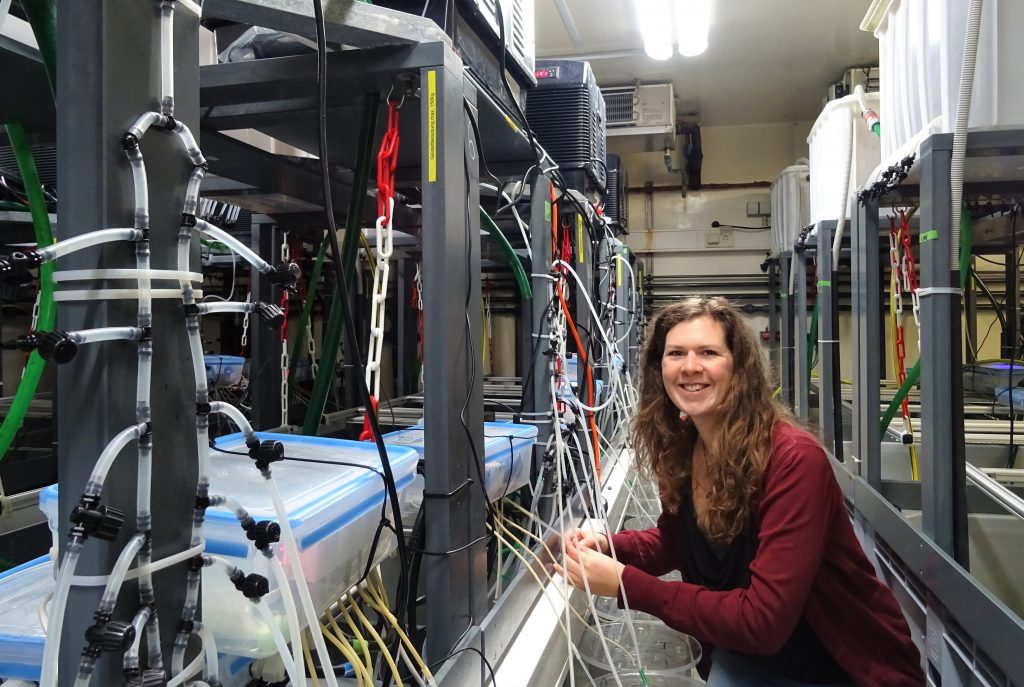Working closely together with Jahangir Vajedsamiei, I am investigating the effects of different temperature variability scenarios on energetics traits and on performance of the bivalve Cerastoderma glaucum (formerly C. edule) from the Baltic Sea. To examine the different temporal scales, we are using a fluorometer and oximeter equipped flow through setup (FOFS) for simultaneous measurements of respiration and filtration rates of single individuals. In order to link these short-term data of functional energetics responses with the long-term performance, we carry out modelling-steps with Python to predict performance in variable environments based on the functional energetics. Additionally, we observe long-term performance in assays conducted in a mesocosm system, the Kiel Indoor Benthocosms (KIBs). To learn more about so called time dependent effects (e.g. physiological acclimation), the predicted performances from the short-term physiology assays are compared to data retrieved from a longer-term performance assay. Understanding how changing variability of environments alter functional energetics traits will allow us to improve predictions of organisms’ performances in a changing and fluctuating world.

Photo by Laura Hennigs
